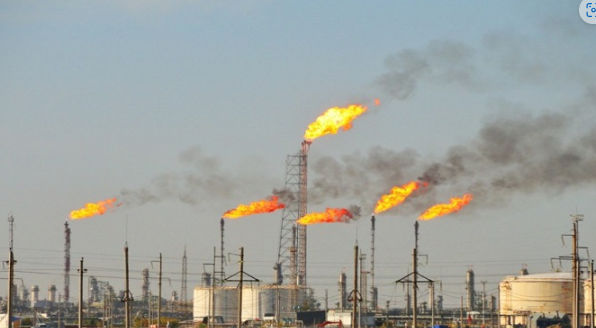GNPC Unveils Forward-Looking Gas Strategy, Calls for Regional Partnerships at West Africa Gas Summit
The Ghana National Petroleum Corporation (GNPC) has unveiled a comprehensive gas strategy aimed at transforming Ghana’s energy landscape and accelerating regional integration, reaffirming its commitment to sustainable energy at the 2025 West Africa Gas Summit held in Accra.
Delivering a presentation on the theme “GNPC’s Vision and Role in the Gas Sector”, the Deputy Chief Executive Officer in charge of Finance, Administration and Commerce, Mr. Hamis Ussif, outlined the Corporation’s long-term aspirations within Ghana’s gas sector and its broader ambitions to position Ghana as a regional energy hub.
“GNPC sees gas not just as a fuel, but as the bridge to a more resilient, inclusive, and prosperous energy future for Ghana and the sub-region,” stated Mr. Ussif. “Natural gas is the unsung hero of our energy narrative—quietly powering industries, homes, and opportunities,” he added, calling on policymakers and energy actors to harness the full potential of gas for economic transformation and energy security.
Gas Strategy Anchored on Infrastructure, Inclusion, and Innovation
Mr. Ussif highlighted that GNPC’s strategy is built around expanding infrastructure, deepening innovation, and ensuring inclusive growth. He maintained that the Corporation’s growing gas portfolio is essential for meeting increasing domestic demand, supporting industrialisation, reducing electricity tariffs, and actualising government’s agenda of making Ghana the energy hub of West Africa.
Ghana currently produces an average of 425 million standard cubic feet of gas per day (MMscfd) from the Jubilee and TEN fields, the Sankofa-Gye Nyame field, and through imports from Nigeria. The resource fuels nearly 70 percent of Ghana’s electricity generation.
However, a growing supply-demand imbalance threatens energy stability. To bridge this gap, GNPC is undertaking a ramp-up in local gas production. According to Mr. Ussif, by July 2025, gas output from the Jubilee field is projected to increase from 100MMscfd to 140MMscfd, while the Sankofa field will see output rise from 245MMscfd to 270MMscfd.
Despite these expansions, GNPC anticipates a continued supply deficit, prompting plans to operationalise an LNG import terminal in 2026. The Corporation is also intensifying exploration efforts, particularly in the offshore and onshore Voltaian Basin, in partnership with both existing and prospective investors.
Driving Ghana’s Energy Agenda Through Strategic Investments
GNPC’s strategic role as a value chain enabler has been underpinned by a number of catalytic investments. The Corporation’s $190 million financing of the Takoradi-Tema Interconnection Project (TTIP), for instance, has facilitated the reverse flow of gas on the West African Gas Pipeline, enhancing system flexibility and energy security.
Mr. Ussif also referenced GNPC’s financial backing of key national infrastructure, including guarantees that secured the Sankofa Gas Project, the establishment of the Atuabo Gas Processing Plant, and the relocation of the Karpowership to Sekondi to access indigenous gas.
Additionally, GNPC financed the construction of a 110-kilometre pipeline from Prestea to Kumasi, laying the foundation for the development of a third power enclave in Ghana’s middle belt. Two new power plants in this enclave are expected to come on stream by year-end.
Unlocking Private Sector Participation
Mr. Ussif reiterated GNPC’s openness to strategic partnerships with private sector players in developing Ghana’s gas infrastructure and distribution network. Upcoming projects include the expansion of domestic gas supply from Jubilee, TEN, and Sankofa fields, the construction of the Tema City Gate, and the establishment of a Compressed Natural Gas (CNG) distribution pipeline within the Tema industrial enclave.
“GNPC is open for partnership—with those who share our commitment to sustainable growth, innovation, and regional development,” he affirmed.
A Regional Call for a Just Energy Transition
On the broader policy front, Mr. Ussif reiterated GNPC’s alignment with Ghana’s decarbonisation agenda and the principles of a just energy transition. He assured that the Corporation would continue playing a pivotal role in achieving environmentally responsible economic growth that benefits all segments of society.
In his closing remarks, Mr. Ussif made an emphatic appeal for collective action and optimism, stating, “Let us, together, unlock the immense potential of natural gas and light the way for millions across West Africa.”








